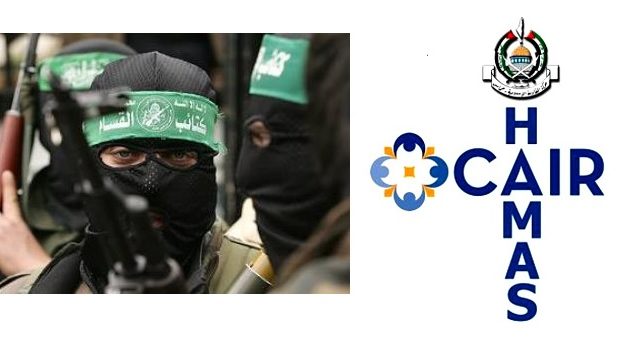Muslim workers walk off job over prayer dispute, get fired — Muslim Brotherhood defends
“There has been a desire among some employees to go in larger groups of people to pray. We just can’t accommodate that. It backs up the flow of all the production. We’re a federally inspected, USDA inspected plant. We have to ensure food safety. We have to ensure the products we produce meet consumer expectations.” No, you don’t, as you’ll soon learn: you have to make sure Muslims are accommodated. Everything else takes a back seat to that.
In reality, Muslims can make up missed prayers at later times, which makes it clear (as does the involvement of Hamas-linked CAIR) that this is simply an Islamic supremacist endeavor to secure special privileges for Muslims, such as we have seen on many other occasions. The objective is to reinforce the principle that wherever Islamic law and practice conflict with American law and practice, it is the latter that must give way.
“Cargill: Tried to resolve issues before firing Colorado Muslim workers,” by Emilie Rusch and Jesse Paul, Denver Post, December 31, 2015 (thanks to David):
Cargill Meat Solutions said Thursday it tried to resolve a workplace prayer dispute with Somali workers at its Fort Morgan meatpacking plant that led to the firing of about 190 employees.
The workers who lost their jobs were mostly immigrants from Somalia, and their termination came after they failed to report to work for three consecutive days last week to protest what they say were changes in times allowed for Muslim prayer.
Cargill says, however, it makes every “reasonable attempt” to provide religious accommodation for all of its employees at the Fort Morgan plant without interrupting operations.
“At no time did Cargill prevent people from prayer at Fort Morgan,” said Michael Martin, a spokesman for the Wichita-based company, which is part of the agribusiness giant Cargill Inc. ” Nor have we changed policies related to religious accommodation and attendance. This has been mischaracterized.”
Cargill also said while reasonable efforts are made to accommodate employees, accommodation is not guaranteed every day and depends on changing factors in the plant.
“This has been clearly communicated to all employees,” Martin said.
But the [Hamas-linked — Ed.] Council on American-Islamic Relations, which is representing more than 100 of the fired employees, said Thursday that messaging from plant supervisors has not always been so clear.
On Dec. 18, the Friday before employee protests began Dec. 21, “the workers were told: ‘If you want to pray, go home,’ ” CAIR spokesman Jaylani Hussein said.
“To these employees, that is what it is. Maybe Cargill never changed its policy, but to these employees, they feel whatever the policy is, or how it is implemented, there was a change put in place,” Hussein said.
Cargill provides a “reflection room” at the plant where observant Muslim workers are allowed to pray, something that has been available since 2009.
Hussein said depending on the season, the workers pray at different times of the day, typically taking five to 10 minutes away from their work. The time was carved out of a 15-minute break period or from the workers’ unpaid 30-minute lunch breaks.
Many of the workers banded together and decided to walk off the job in an attempt to sway plant managers to reinstate the prayer policy.
“They feel missing their prayer is worse than losing their job,” Hussein said. “It’s like losing a blessing from God.”
On Dec. 23, Cargill fired the holdouts who had not returned to work, citing a company policy that employees who do not show up for work or call in for three consecutive days will be let go.
“It’s an unfortunate situation that may be based somewhere in a misunderstanding,” Martin said. “But the policies have been in place, and we go over the policies for all people who are newly hired to the company when they are hired.”
All of the terminated employees worked the second shift on the plant’s fabrication floor, where chilled beef carcasses are broken down into smaller cuts and packaged, Martin said.
Of those involved, “fewer than 20” employees walked out in the middle of a shift, he said. About 160 failed to report to work, and 10 resigned.
Before the walkout, Cargill employed roughly 600 Somali workers at the Fort Morgan plant. More than 400 still work there, Martin said, and accommodations are still being made to allow Muslims to leave the floor in small groups to pray.
“There has been a desire among some employees to go in larger groups of people to pray. We just can’t accommodate that,” Martin said. “It backs up the flow of all the production. We’re a federally inspected, USDA inspected plant. We have to ensure food safety. We have to ensure the products we produce meet consumer expectations.”…
RELATED ARTICLES:
France: Muslim screaming “Allahu akbar” tries to run down soldiers guarding mosque
Rochester, NY New Year’s jihad mass murder plotter converted to Islam in prison




Leave a Reply
Want to join the discussion?Feel free to contribute!